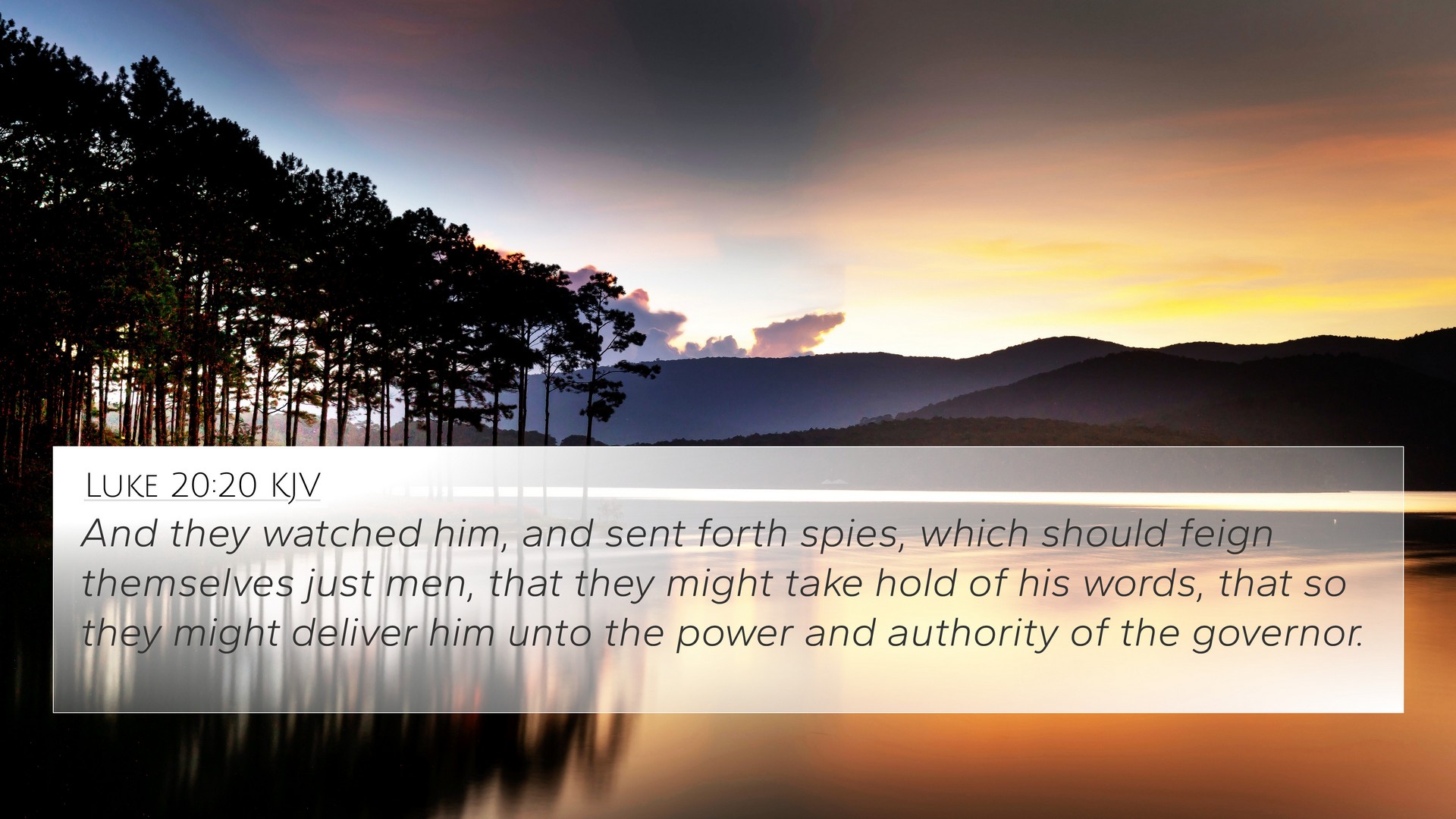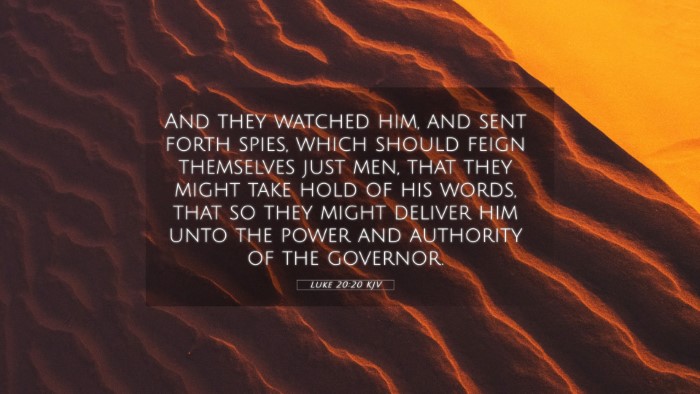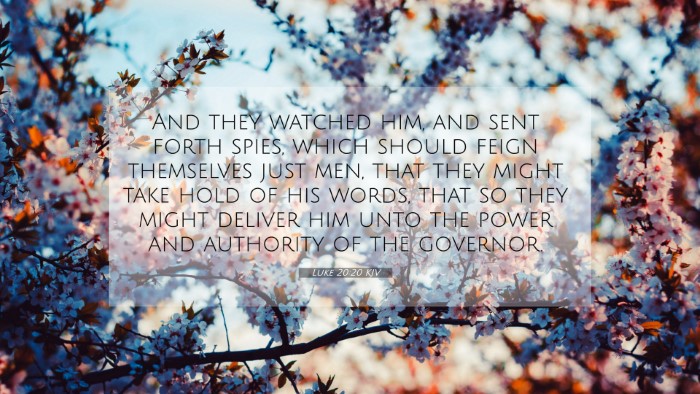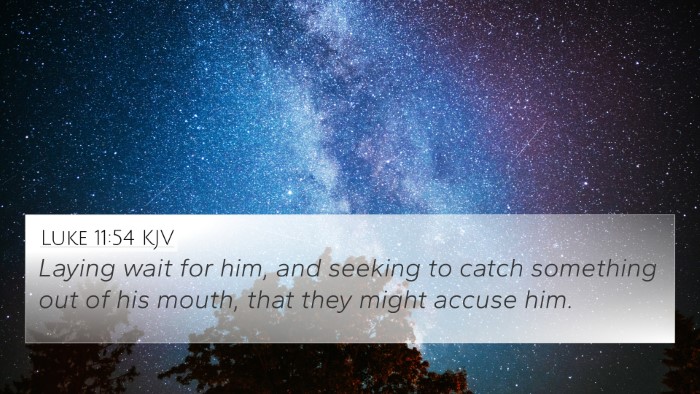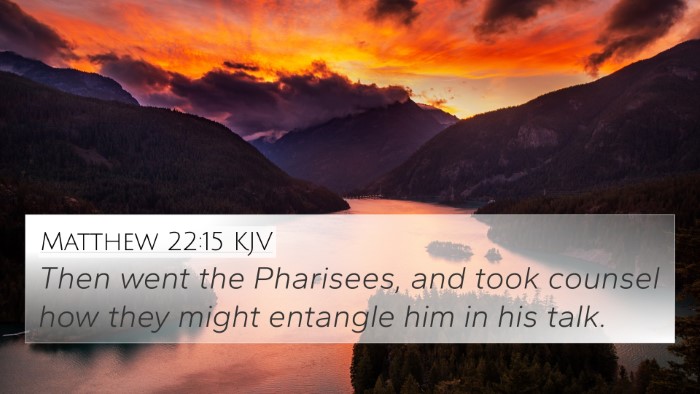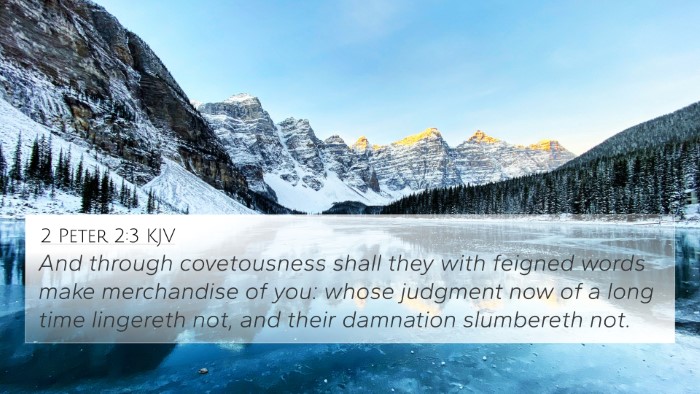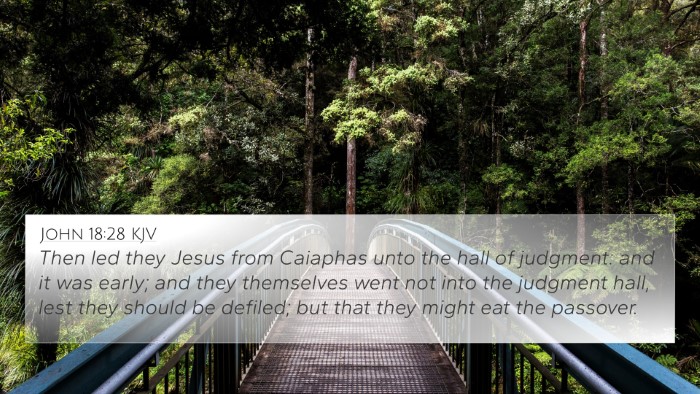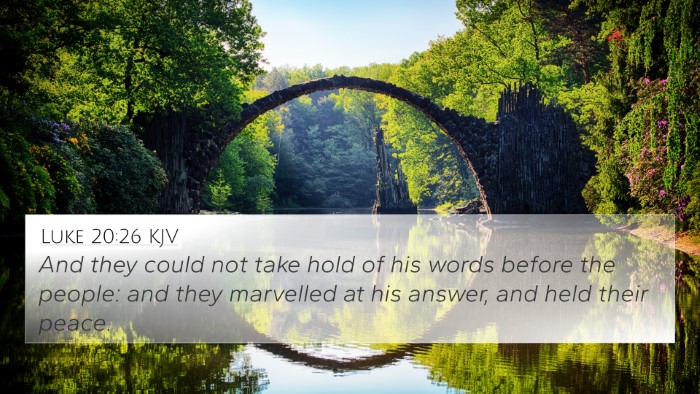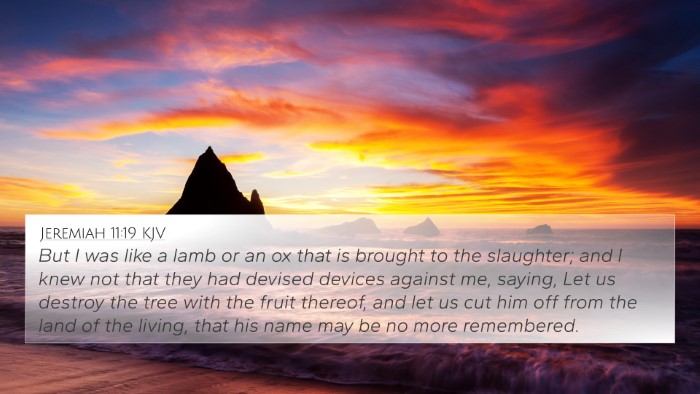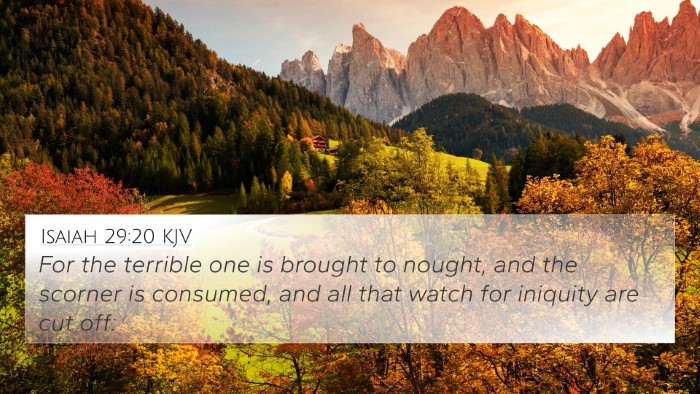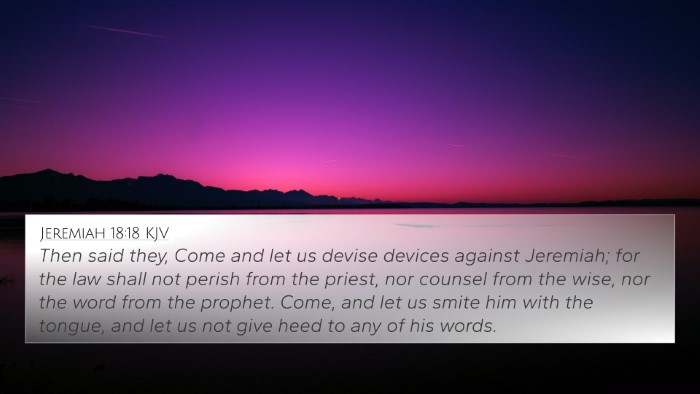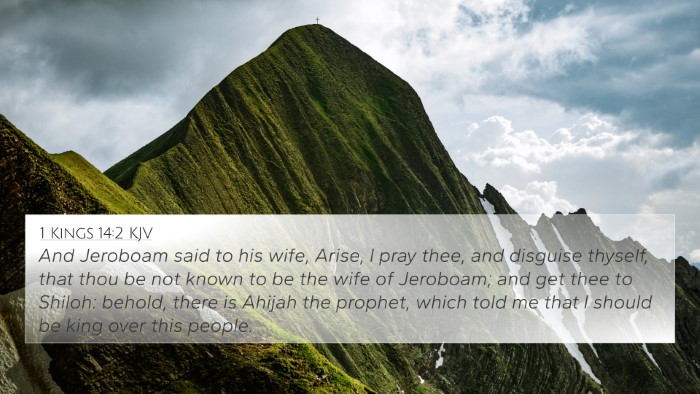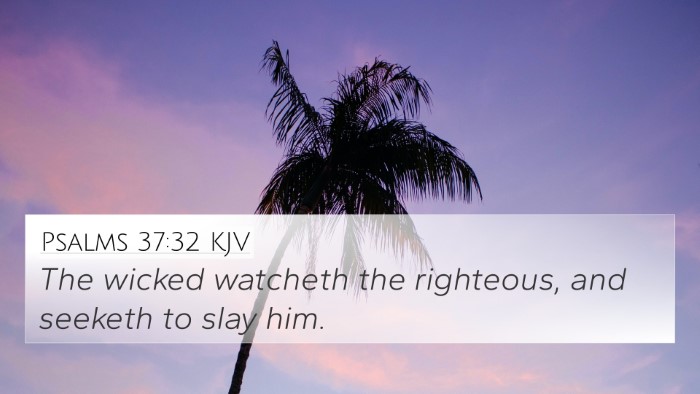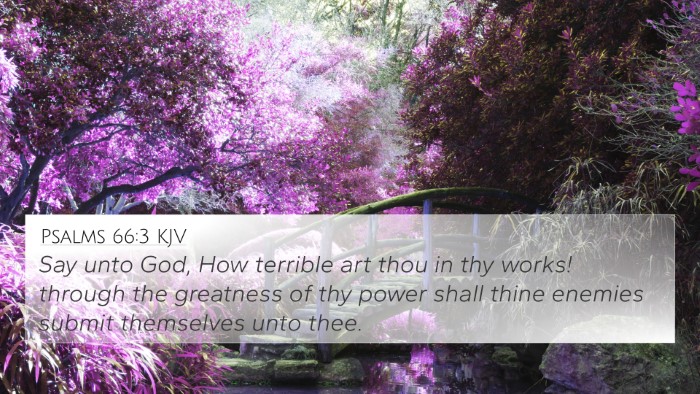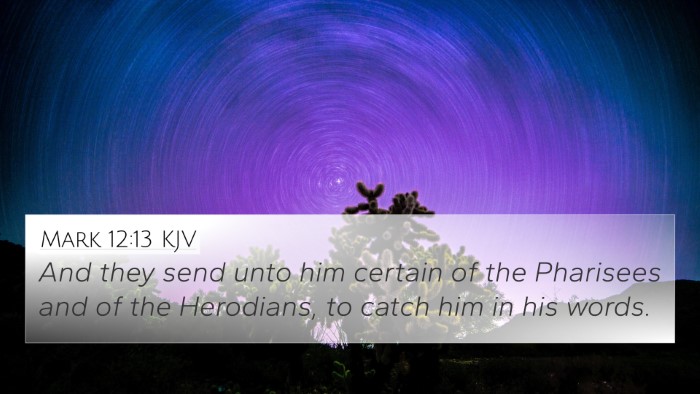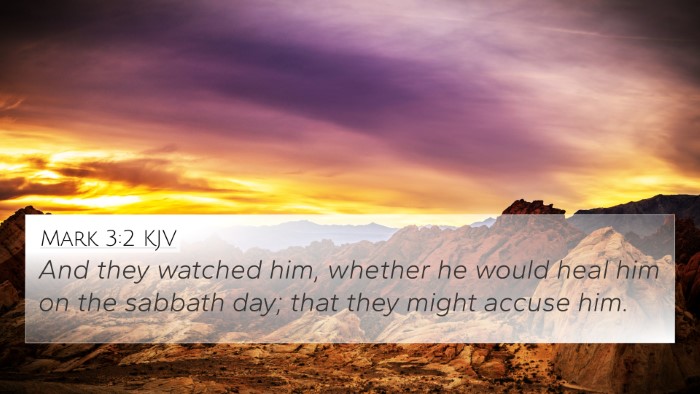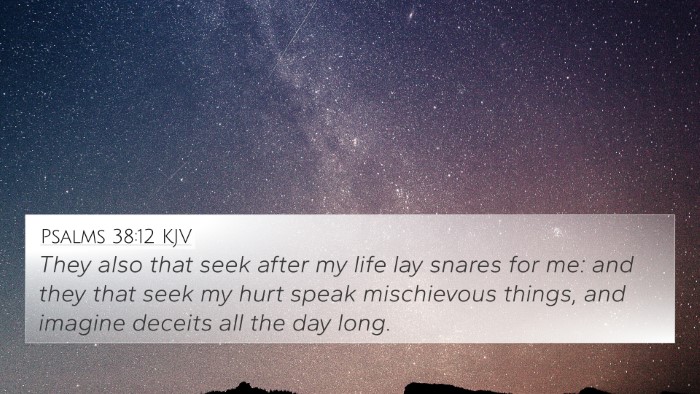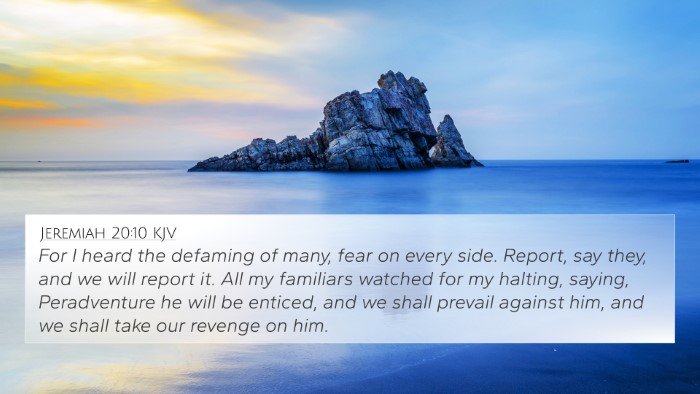Understanding Luke 20:20
Luke 20:20 states: "So they watched Him and sent spies who pretended to be righteous, that they might seize on His words, in order to deliver Him to the power and authority of the governor." This verse captures a critical interaction during Jesus' ministry as it showcases the adversarial relationship between Jesus and the religious authorities of His time. The intent of these spies was to entrap Jesus, which led to broader implications for His mission and the eventual events of His crucifixion.
Verse Meaning and Interpretation
The study of Luke 20:20 reveals several key insights regarding the motivations of the religious leaders and their tactics against Jesus. Drawing from public domain commentaries, we can gather profound interpretations as follows:
- Matthew Henry's Commentary:
Matthew Henry emphasizes the pretense of righteousness exhibited by the spies, illustrating the deceitful nature of the religious leaders. He notes that this strategy indicates their desperation and unwillingness to confront Jesus directly, showing their cowardice and their reliance on duplicitous methods.
- Albert Barnes' Notes:
Albert Barnes underlines that the spies are representative of the greater religious opposition faced by Jesus. By feigning piety, they aimed to catch Jesus off guard and to frame Him in a way that would provoke Roman authorities into action. This highlights the intersection of religious and political conflict in the context of first-century Judea.
- Adam Clarke's Commentary:
Adam Clarke discusses the implications of this act of spying, suggesting that it suggests the lengths to which the Jewish leaders would go to undermine Jesus. Clarke points out that their plot reflects an early form of judicial manipulation, attempting to twist Jesus' words to fit their narrative.
Contextual Analysis
To properly understand Luke 20:20, it is also important to view it in its larger context. The preceding verses detail various parables and teachings of Jesus, which increasingly antagonized the religious authorities. As the chapter progresses, we see their escalating hostility towards Him, culminating in this calculated maneuver.
Cross-References to Luke 20:20
Below are several cross-references that offer deeper insights into the dynamics at play in Luke 20:20:
- Matthew 22:15-17: The Pharisees conspire to trap Jesus with questions about paying taxes to Caesar.
- Mark 12:13-15: Similar narrative where the Pharisees send their followers to query Jesus.
- John 8:6: The religious leaders attempt to trap Jesus by questioning Him about the woman caught in adultery.
- Luke 11:53-54: The scribes and Pharisees watch Jesus closely to catch His words.
- Matthew 26:4: The chief priests plot to arrest Jesus by stealth and kill Him.
- Luke 23:1-2: Accusations against Jesus lead to His eventual trial before Pilate.
- John 11:53: The religious authorities plot to put Jesus to death.
Thematic Connections
The themes of deception, betrayal, and judicial manipulation are prevalent throughout the Gospel accounts and can be analyzed through various Biblical texts. Understanding Luke 20:20 in relation to these verses can illuminate the practices of the religious leaders and their strategic maneuvers.
Conclusion
Luke 20:20 serves as a poignant illustration of the conflict between Jesus and the established religious authorities. Through the combined insights from Matthew Henry, Albert Barnes, and Adam Clarke, we gain a deeper understanding of the tactics employed against Jesus and the motivations behind them. This verse not only stands alone but connects thematically and contextually to numerous other scriptures in the Bible, enriching our comprehension of the narrative of Jesus' ministry and the surrounding socio-political climate.
Exploring Bible Cross-References
To effectively analyze the scriptural interrelations, it is invaluable to utilize tools for Bible cross-referencing. Whether one utilizes a Bible concordance or engages with comprehensive Bible cross-reference materials, understanding how to find cross-references can enhance our study of scripture. How do two specific Bible verses connect? This question is crucial for engaging in in-depth study and comprehension of inter-Biblical dialogue.
